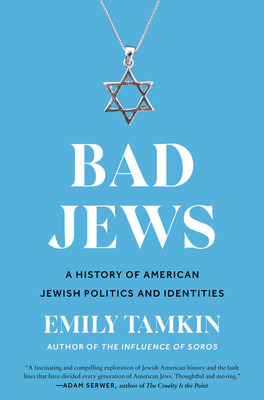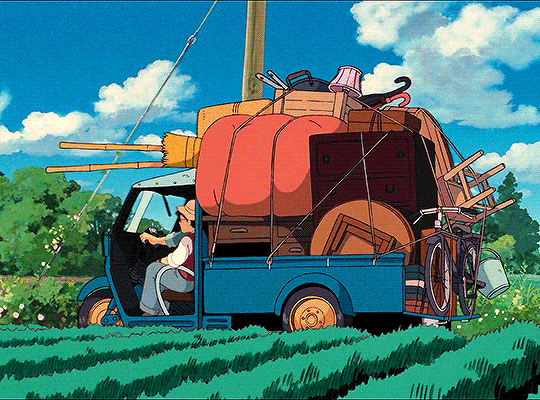Don't wanna be here? Send us removal request.
Text
I’m reading the way of kings and god I just love Kaladin. My adoration for that man knows no bounds. Brandon Sanderson made a deal with the night watcher to get a character so equal parts depressed and lovable. The amount of trauma you stuffed into that boy, truly remarkable. 10/10
63 notes
·
View notes
Text
We have killed innocents, they have killed innocence .
0 notes
Text
“what’s France like? “ Zoro asked
“Google it.”
“Fuck you.”
#make no mistake by dickyang#make no mistake#dickyang#zosan#still the greatest line I’ve ever read#sanji#one piece#zosan insults#zoro
52 notes
·
View notes
Photo




Nonfiction Recommendations: Jewish American Heritage Month
Black, White and Jewish by Rebecca Walker
The Civil Rights movement brought author Alice Walker and lawyer Mel Leventhal together, and in 1969 their daughter, Rebecca, was born. Some saw this unusual copper-colored girl as an outrage or an oddity; others viewed her as a symbol of harmony, a triumph of love over hate. But after her parents divorced, leaving her a lonely only child ferrying between two worlds that only seemed to grow further apart, Rebecca was no longer sure what she represented. In this book, Rebecca Leventhal Walker attempts to define herself as a soul instead of a symbol—and offers a new look at the challenge of personal identity, in a story at once strikingly unique and truly universal.
Bad Jews by Emily Tamkin
What does it mean to be a Bad Jew? Many Jews use the term “Bad Jew” as a weapon against other members of the community or even against themselves. You can be called a Bad Jew if you don’t keep kosher; if you only go to temple on Yom Kippur; if you don’t attend or send your children to Hebrew school; if you enjoy Christmas music; if your partner isn’t Jewish; if you don’t call your mother often enough. The list is endless.
In Bad Jews, Emily Tamkin argues that perhaps there is no answer to this timeless question at all. Throughout American history, Jewish identities have evolved and transformed in a variety of ways. American Jewish history is full of discussions and debates and hand wringing over who is Jewish, how to be Jewish, and what it means to be Jewish. In this book, Emily Tamkin examines the last 100 years of American Jewish politics, culture, identities, and arguments. Drawing on over 150 interviews, she tracks the evolution of Jewishness throughout American history, and explores many of the evolving and conflicting Jewish positions on assimilation; race; Zionism and Israel; affluence and poverty, philanthropy, finance, politics; and social justice. From this complex and nuanced history, Tamkin pinpoints perhaps the one truth about American Jewish It is always changing.
Genius & Anxiety by Norman Lebrecht
In a hundred-year period, a handful of men and women changed the way we see the world. Many of them are well known—Marx, Freud, Proust, Einstein, Kafka. Others have vanished from collective memory despite their enduring importance in our daily lives. Without Karl Landsteiner, for instance, there would be no blood transfusions or major surgery. Without Paul Ehrlich, no chemotherapy. Without Siegfried Marcus, no motor car. Without Rosalind Franklin, genetic science would look very different. Without Fritz Haber, there would not be enough food to sustain life on earth.
What do these visionaries have in common? They all had Jewish origins. They all had a gift for thinking in wholly original, even earth-shattering ways. In 1847 the Jewish people made up less than 0.25% of the world’s population, and yet they saw what others could not. How? Why?
Norman Lebrecht has devoted half of his life to pondering and researching the mindset of the Jewish intellectuals, writers, scientists, and thinkers who turned the tides of history and shaped the world today as we know it. In Genius & Anxiety, Lebrecht begins with the Communist Manifesto in 1847 and ends in 1947, when Israel was founded. This robust, magnificent volume, beautifully designed, is an urgent and necessary celebration of Jewish genius and contribution.
People Love Dead Jews by Dara Horn
Renowned and beloved as a prizewinning novelist, Dara Horn has also been publishing penetrating essays since she was a teenager. Often asked by major publications to write on subjects related to Jewish culture—and increasingly in response to a recent wave of deadly antisemitic attacks—Horn was troubled to realize what all of these assignments had in common: she was being asked to write about dead Jews, never about living ones. In these essays, Horn reflects on subjects as far-flung as the international veneration of Anne Frank, the mythology that Jewish family names were changed at Ellis Island, the blockbuster traveling exhibition Auschwitz, the marketing of the Jewish history of Harbin, China, and the little-known life of the “righteous Gentile” Varian Fry. Throughout, she challenges us to confront the reasons why there might be so much fascination with Jewish deaths, and so little respect for Jewish lives unfolding in the present.
Horn draws upon her travels, her research, and also her own family life—trying to explain Shakespeare’s Shylock to a curious ten-year-old, her anger when swastikas are drawn on desks in her children’s school, the profound perspective offered by traditional religious practice and study—to assert the vitality, complexity, and depth of Jewish life against an antisemitism that, far from being disarmed by the mantra of “Never forget,” is on the rise. As Horn explores the (not so) shocking attacks on the American Jewish community in recent years, she reveals the subtler dehumanization built into the public piety that surrounds the Jewish past—making the radical argument that the benign reverence we give to past horrors is itself a profound affront to human dignity.
44 notes
·
View notes
Text
Challengers and nothing is different except they play pickleball.
1 note
·
View note
Text
שבת שלום
110 notes
·
View notes
Text
I kill the snake, slam its head into the ground, crush its body under my boot, and throw its corpse as far as my arm can manage. A little girl has seen this, a little girl cries.
“ he gave you a kiss, he said I love you through a hiss, why did you do that to the poor old snake?”
She shakes and sobs.
“ he was so small and you are so big, do you kill every little thing?”
The snakes poison is in my veins, it’s blood stains my fingertips, and the bite mark the kiss mark it left on my skin still burns.
“ you killer, you monster, you vile snake”
She hisses at me.
The girl has teeth, behind crying lips, she too can bite.
1 note
·
View note
Text
A: “Would it really be so horrible to love me?”
B: “I do love you, and it’s fucking awful”
#otp#zosan#wolfstar#I’m picturing all my otps#just thinking that they are standing there dejected and broken totally convinced they are unlovable#but still being brought so low that they have to plead not even for love but just a moment to imagine a love that could be#saying all this to the one person who does love them has loved them and has suffered immensely for it needs to lock it away#for their own sake#so now one person is giving the only love they can give to someone who can’t accept it#just broken people#love#love quotes#ficlet#prose
25 notes
·
View notes
Text
This town ain’t babygirl enough for the both of us
#saltburn#i saw the movie that’s the whole plot#I wish British people were real#jacob elordi#berry keoghan#emerald fennell
2 notes
·
View notes
Text
By this point I’m reading one piece modern au’s purely to see how the author modernizes the zosan insults. I’ve been collecting them:
Sanji
- Chef Boyardee
- cooking mama
-Pepe Le pew
- Gordon Ramsey
- Monsieur Jerks-Off-To-The-Food-Network
- strawberry shortcake
- La la ( the teletubby with a swirl on its head)
Zoro
- chia pet
- dipsy ( the green teletubby)
- Oscar the grouch
- Larry the cucumber
- bulbasaur
- piccolo
- Connard
- Mike Wazowski
#one piece#zosan#modern au#make no mistake#god I love that fic#modern au zosan hits different#the one constant of every universe is that they piss each other off#imma keep adding to this#zosan insults#nicknames#roronoa zoro#sanji
135 notes
·
View notes
Text
Ok but imagine Zoro gets turned into a woman. It’s the grand line anything can happen, so Zoro eats the wrong fruit, or pisses of a witch and boom lady-Zoro; complete ranma 1/2 hijinks ensue.
Of course Zoro doesn’t care all that much, he’s still gonna be the greatest swordsman to ever live, and he still can’t figure out how to properly close a shirt, no pair of boobs is going to change that. Meanwhile sanji is having 13 existential crises all at once.
We have the most homophobic gay man to sail the seas, having to deal with the unstoppable force (a pathological need to fight the Marimo) meeting the immovable object (love and respect for all woman). Honest to God it may actually kill him.
Like Sanji is discovering new parts of himself everytime he sees Zoro lift weights, and Zoro is using this to get unrestricted access to the sake.
#ranma 1/2#zosan#one piece#not a want but a need#trans zoro#nami offers Zoro 10% of the belli he owes if he wears a nice dress#and sanji just stares as a river of blood flows from his nose#if this doesn’t exist then I will make it#zoro#sanji#1/2 piece
783 notes
·
View notes
Text
God gives his dumbest battles to his stupidest soldiers
56 notes
·
View notes
Photo

Rosa ‘Borussia’
Photography by Xuebing Du
Instagram: xuebing.du
35K notes
·
View notes
Photo







Trees and people used to be good friends. I saw that tree and decided to buy the house. Hope Mom likes it too.
となりのトトロ / My Neighbor Totoro (1988) dir. Hayao Miyazaki
4K notes
·
View notes
Text





ALICE IN WONDERLAND illustrations by Nicole Claveloux. 1974.
2K notes
·
View notes
